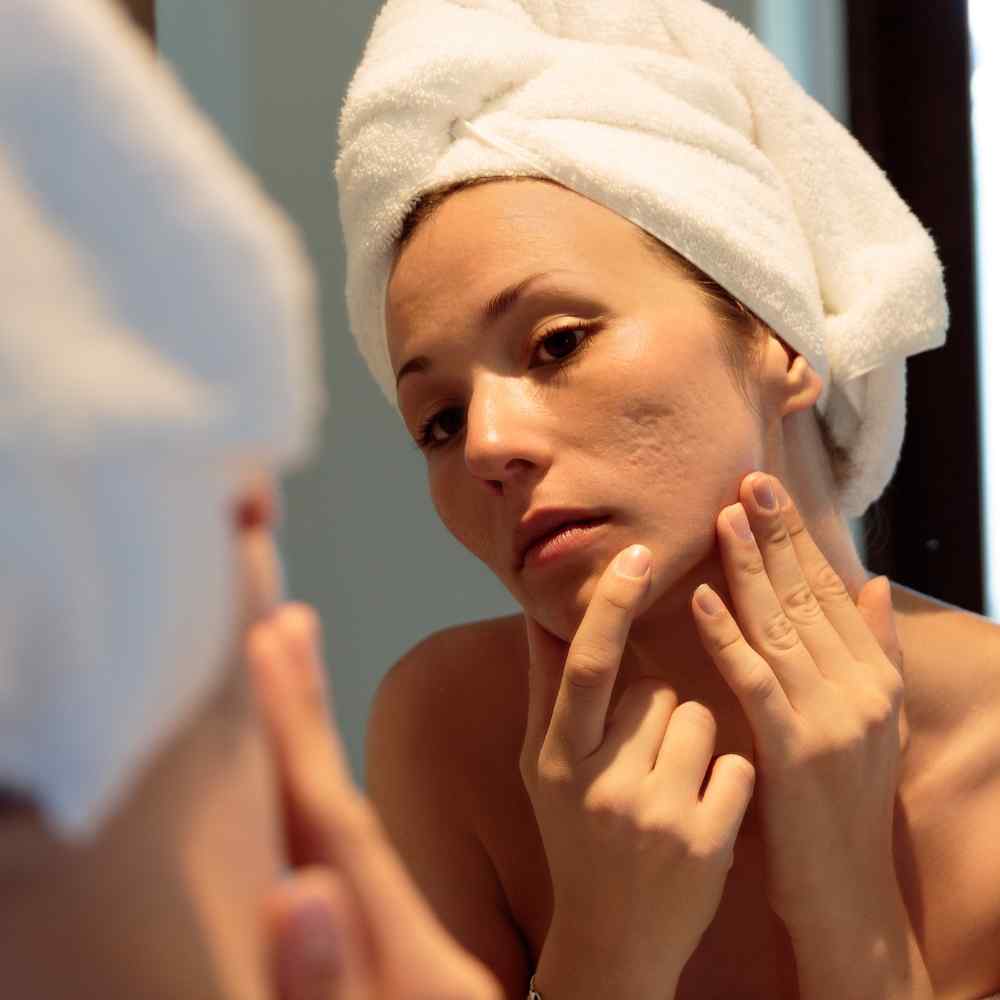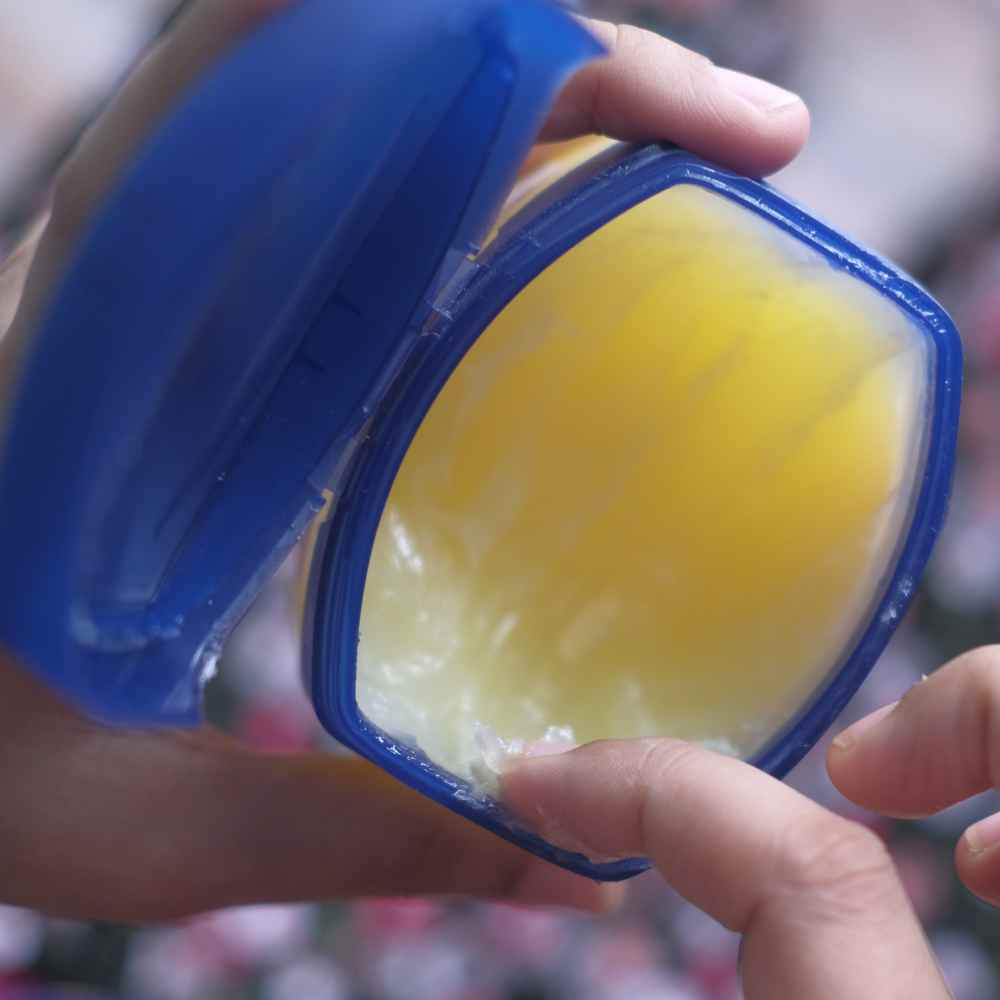
Does Vaseline Help Acne or Make it Way Worse?
Do you suffer from acne? Congratulations, you're officially part of the club! You know what I'm talking about - slow-healing breakouts, pesky blackheads and bumps that always seem to pop up at the worst time.
While there are lots of solutions out there for dealing with these issues, one product keeps showing up again and again: Vaseline. But does it really help clear your skin problems or make them even worse?
To settle the debate once and for all (because trust me...this is a heated subject!), let's take a look at both sides of the story!
Your Acne and its Causes
When it comes to acne, all of us have been there! It's one of the most common skin conditions, so you're definitely not alone in wanting to know what causes it. Well, long story short - it's all about the hormones.
Cystic acne is caused by an increase in hormones called androgens, which are typically found in both males and females during puberty. These androgens trigger excess oil production in your body which can clog pores leading to bacteria growth – also known as pimples!
It doesn't stop there though; other factors can contribute too. These include poor nutrition (especially processed foods), stress, medications like birth control pills or steroids, hormonal changes due to pregnancy or menopause – even overactive sweat glands that lead to excessive sweating after exercise can be a culprit!
There are plenty more factors still that can worsen acne too such as certain skin products containing oils.
One thing is for sure, though: if you want healthy looking skin free from acne then you must make sure you maintain good hygiene habits like washing your face twice a day with a gentle pore cleanser.
You should avoid touching your face with unclean hands and opt for oil-free cosmetics whenever possible!
Lastly just remember that while diet won’t cure acne completely - eating foods rich in vitamins A & E can help reduce inflammation caused by breakouts.

Why Use Vaseline for Acne?
Vaseline, a petroleum-based product, is widely known for its occlusive properties. It forms a protective barrier on the skin's surface, preventing moisture loss and shielding the skin from external irritants.
Many people use Vaseline to moisturize chapped and dry skin, heal minor cuts and burns, and protect their skin from harsh weather conditions. However, its potential benefits for acne-prone skin remain a subject of debate.
Contrary to popular belief, Vaseline itself does not cause acne. It is considered non-comedogenic, meaning it does not cause clogged pores.
However, whether Vaseline can effectively prevent and treat acne is a matter of individual experience and skin type.
Some people with acne-prone skin have reported positive outcomes after using Vaseline, while others have found it to be ineffective or even exacerbating their acne.
The Potential Benefits of Vaseline for Acne
If there's a rumor going around that Vaseline helps acne, then there must be some truth to it. What are the benefits? Here are a few reasons this substance might be good for your acne.
Moisture Retention
One of the potential benefits of Vaseline for acne-prone skin is its ability to retain moisture. Well-hydrated skin is less likely to produce excess oil, which can contribute to acne.
Applying a layer of Vaseline on dry or dehydrated areas can help lock in moisture and improve skin hydration.
Protective Skin Barrier
Vaseline acts as a protective barrier, shielding the skin from external irritants and environmental pollutants that can aggravate acne.
By creating a physical barrier, Vaseline may help reduce inflammation and prevent further breakouts in some individuals.
Healing Properties
Vaseline is known for its potential to promote skin healing. When applied to acne lesions, it can help soothe irritation, reduce redness, and support the skin's natural healing process.
This skin barrier repair may be particularly beneficial for individuals experiencing acne-related inflammation and acne scars.

Using Vaseline for Acne-Prone Skin
If you're considering incorporating Vaseline into your acne skincare routine, it's important to proceed with caution and tailor its usage to your skin's needs. Here are some guidelines to keep in mind:
Cleanse Thoroughly
Before applying Vaseline, ensure your skin is clean and free from dirt, oil, and makeup. Use a gentle cleanser suitable for acne-prone skin to prevent pore blockage.
Spot Treatment
Instead of applying Vaseline all over your face, consider using it as a spot treatment for dry or irritated areas. Apply a thin layer of Vaseline specifically on those areas, avoiding active acne lesions.
Moisturizer Compatibility
While Vaseline can be used as a moisturizer, it may not be suitable for all skin types. Some individuals with oily or acne-prone skin find Vaseline too heavy and occlusive, potentially leading to pore congestion and acne breakouts.
If you decide to use it as a moisturizer, patch-test it on a small area of your skin first to gauge its compatibility. There are other masks and moisturizers you can use if Vaseline is not a match for you.
Nighttime Application
Applying Vaseline as part of your nighttime skincare routine may be beneficial. After cleansing and applying any acne treatments, apply a thin layer of Vaseline to lock in moisture and aid the skin's healing process while you sleep.
Consulting a Skincare Professional
Every individual's skin is unique, and what works for one person may not work for another. If you have concerns about acne or other skin conditions, it's advisable to consult a dermatologist or skincare professional for a customized acne treatment plan.
They can provide personalized guidance, recommend suitable products, and help you develop an effective acne management plan. This may include products that contain salicylic acid, benzoyl peroxide, glycolic acid, or retinoids such as tretinoin.
Dr. Dray, a dermatologist, is a fan of petroleum jelly. She explains the benefits and drawbacks of using Vaseline on your acne-prone skin.
Ready to Try Vaseline for Your Acne?
Ultimately, Vaseline may not be the answer to curing acne for everyone. As with any skin care product, it’s important to take into account your own individual needs and preferences.
There's no one-size-fits-all solution for acne. For some people, Vaseline might work wonders to clear up their acne struggles. For others, however, Vaseline won't do a thing to help.
If your efforts in using Vaseline don't seem to break the spell of acne on your skin, it's time to troubleshoot and find other methods that work better for you—constantly read labels on skincare products so you know what's inside them!
Above all else, if nothing else seems to be working or improving your acne condition, consult a professional who can provide specialized advice tailored to your own unique needs and conditions.
All in all, have faith and remember that finding the right skincare solution may take time—but it is certainly possible!

















